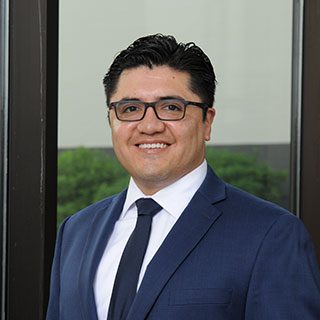
People may first notice a hernia when they lift something heavy — for example, picking up a box and hearing a “pop.” The pain is cause for pause. Could it be a hernia?
According to the National Institute of Diabetes and Digestive and Kidney Diseases, about 27 percent of men and three percent of women will get an inguinal hernia at some point in their lives.
What is an inguinal hernia?

An inguinal hernia refers to a hernia in your inner groin area. Normally, you have a strong wall of muscle protecting your inner groin. But a hernia can happen when there is a weakness or tear in that muscle, causing a hole. An internal organ (your bladder or intestine) or other tissue can poke through that hole, causing pain and a noticeable bulge.
Inguinal hernias are most common in men because of their anatomy. There is an existing hole in the muscle to let blood vessels through, which creates a weak spot. For some people, pressure, often caused by lifting a heavy object, causes that weak area to open and becomes an inguinal hernia.
You might have a hernia if you have any of these symptoms:
- A visible bulge on either side of your pubic bone that disappears when you lie down
- An aching or burning feeling at the bulge
- Pain, weakness, or pressure in your groin, especially when lifting or coughing
More serious signs of a hernia with complications include:
- a bulge that turns a different color
- a bulge that can’t be pushed back in
- fever
- nausea or vomiting
- sudden and intense pain
If you experience any of these signs, seek emergency care right away by going to the ER or calling 911.
Do you need surgery to fix your hernia?
Not all hernias need to be repaired, but the only way to repair a hernia is with surgery.
“Hernias don’t have to get worse. They can stay the same for many years,” said Alan Reyes Cruz, MD, general surgeon with Regional Health General Surgery in Terre Haute, Indiana. “But they never get better. There is no time when a hernia will repair itself.”
Dr. Reyes Cruz recommends patients consider surgery if their hernia is causing pain or the bulge is getting bigger. After recovering from surgery, patients no longer have the hernia bulge or pain. They can return to normal activities with no symptoms.
Minimally invasive robotic hernia surgery
Hernia surgery can be performed using minimally invasive techniques. The surgeon makes three small incisions about one fourth inch long and uses robotic arms as a tool. “The surgeon is in control the entire time—the robot is just another tool we use,” affirms Dr. Reyes Cruz. “I do the majority of hernia surgeries robotically because, for the average patient, the benefits are really attractive.”
Benefits of minimally invasive robotic hernia repair include:
- Less pain/better pain control
- Faster recovery
- Less bleeding
- Smaller cuts
To repair your hernia, the surgeon will first open up the area around the hernia. They will then place medical mesh over the hole to seal and reinforce it. “Mesh has an undeserved bad reputation. There were many issues decades ago, but those are rarely problems today. In reality, mesh is probably the single most important advancement in hernia surgery.” The mesh stops anything from going through your hernia and reinforces the weak spot.
Hernia repair usually takes one to two hours, and you will go home the same day. After your operation, your surgeon will likely recommend you take about a week off from work and avoid any heavy lifting for six weeks. Full recovery takes time, and it may be almost a year before you feel completely back to normal.
Dr. Reyes Cruz knows his patients sometimes worry their hernia will come back, but that is unlikely. “Fortunately, the average robotic hernia repair success rate is great. There is only a one or two percent likelihood that it would come back.”
Is surgery right for your hernia?
Have a conversation with a qualified medical professional, like your primary care provider or a general surgeon who specializes in hernia surgery. They can review your unique situation, answer your questions, and address your concerns.
Dr. Reyes Cruz is a fellowship-trained general surgeon with expertise in robotic hernia surgery and many other minimally invasive and traditional procedures. He is welcoming new patients and referrals as part of the expert care team at Regional Health General Surgery and is affiliated with Terre Haute Regional Hospital.
Please call (812) 234-5400 to schedule an appointment, or book online.